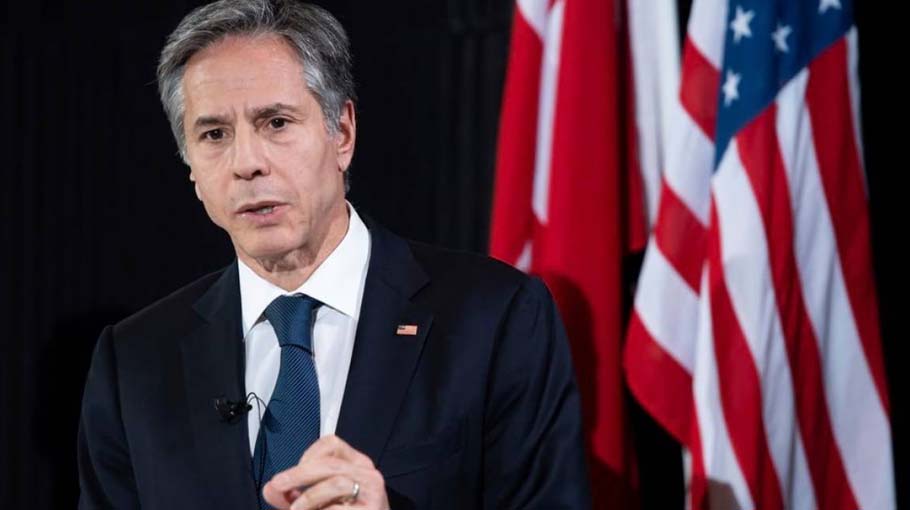Blinken begins Southeast Asia tour, with China in focus

US Secretary of State Antony Blinken on Monday began a Southeast Asia tour in the Indonesian capital Jakarta, where he will outline Washington's policy on the Indo-Pacific, a key US-China battleground.
Arriving from Britain after a G7 foreign ministers' meeting dominated by tensions with Russia, Blinken will highlight what his administration says is the importance of Southeast Asia in US foreign policy.
Later Monday, he will meet Indonesian President Joko Widodo, and on Tuesday will deliver an address on the "US approach to the Indo-Pacific".
US President Joe Biden's strategy does not differ fundamentally from that of former president Donald Trump's government -- insisting that the region should remain free and open in the face of rising Chinese aggression.
But Biden's team has put a heavier emphasis on building alliances to counter Beijing, after the turbulence and unpredictability of the Trump era.
After Indonesia, Blinken heads to Malaysia and Thailand.
In his meetings, he will "focus on strengthening the regional security infrastructure in response to PRC bullying in the South China Sea," Daniel Kritenbrink, assistant secretary of state for East Asian and Pacific affairs, told reporters ahead of the trip, using the abbreviation for the People's Republic of China. "We oppose any actions by the People's Republic of China or any other actor designed to destabilise the region," Kritenbrink said.
Tensions have been stoked by Beijing's claims to almost all of the South China Sea, which overlap with those of several Southeast Asian states.
Blinken also plans to address the worsening crisis in Myanmar, which has been in chaos since a military coup in February. He has said China poses "the biggest geopolitical test" of the century but is seeking to walk a fine line between competition and confrontation.
Relations have nevertheless soured in recent years particularly over democratic, self-ruled Taiwan, which China claims as its territory and has vowed to retake one day, by force if necessary.




